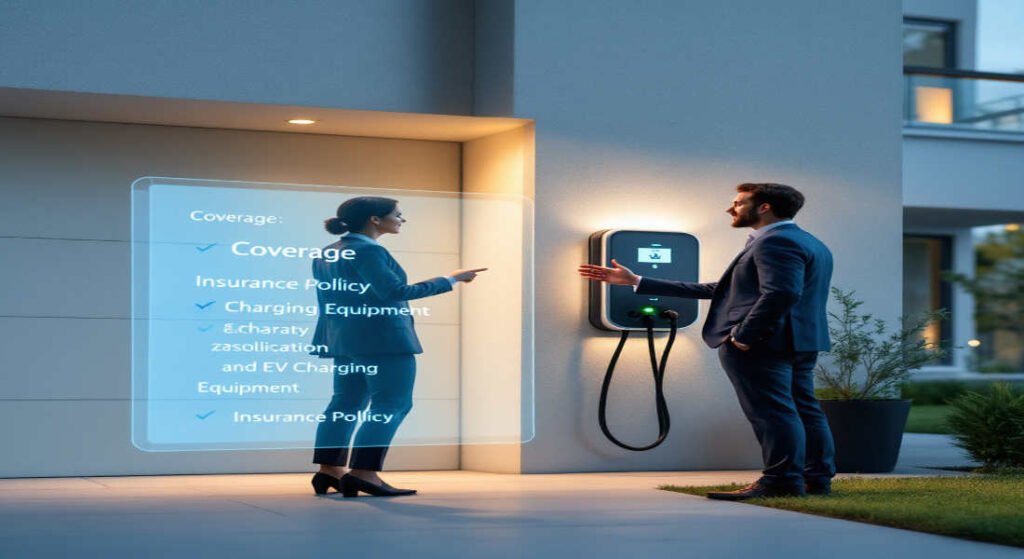Electric vehicles (EVs) are becoming increasingly popular worldwide, revolutionizing the way we think about transportation and sustainability. As more people embrace the EV lifestyle, installing home charging stations (EV chargers) has become a common and convenient choice. However, with this new technology comes a critical question: Does home insurance cover an EV charger?
What Is an EV Charger and Why Is It Important to Insure?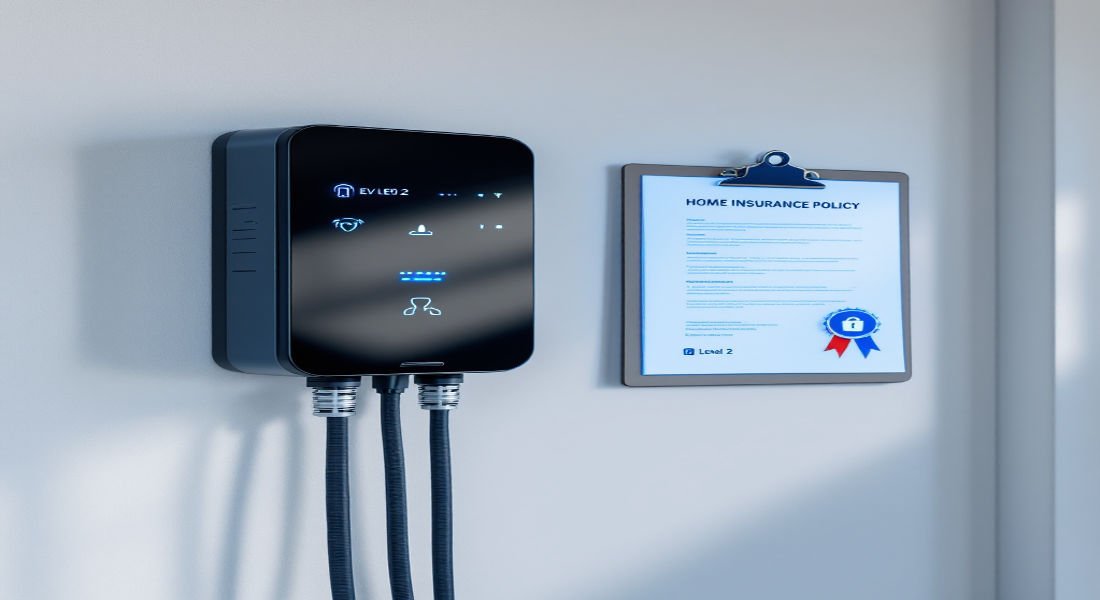
EV chargers are essential equipment for electric vehicle owners, allowing them to recharge their cars conveniently at home. These devices come in two main types: hard-wired chargers and portable chargers. Let’s take a closer look at their differences and why insuring them is so important.
Types of EV Chargers
- Hard-Wired Chargers:
- These chargers are permanently installed in your home, typically in a garage or on an exterior wall. They are considered part of your home’s infrastructure and often fall under the “dwelling” category in home insurance policies.
- Portable Chargers:
- Portable chargers are plug-and-play devices that can be moved easily. They are not permanently fixed to your home and are usually considered personal property.
Cost and Value of EV Chargers
The cost of installing an EV charger can range from $500 to $1,500 or more, depending on the type and installation complexity. High-end chargers with advanced features, like Wi-Fi connectivity or faster charging speeds, can cost even more, making them a significant investment for homeowners.
Importance of Insuring EV Chargers
Having insurance coverage for your EV charger is crucial for several reasons:
- Protection Against Damage: Chargers are vulnerable to risks like electrical faults, fire, or weather-related damage.
- Theft or Vandalism: Expensive equipment like portable chargers can be stolen or vandalized.
- Liability Risks: If someone is injured while using your charger or if it causes damage to a neighbor’s property, your insurance may protect you from financial liability.
By understanding the value and risks associated with EV chargers, you can see why it’s essential to ensure they’re adequately insured.
Does Home Insurance Cover an EV Charger?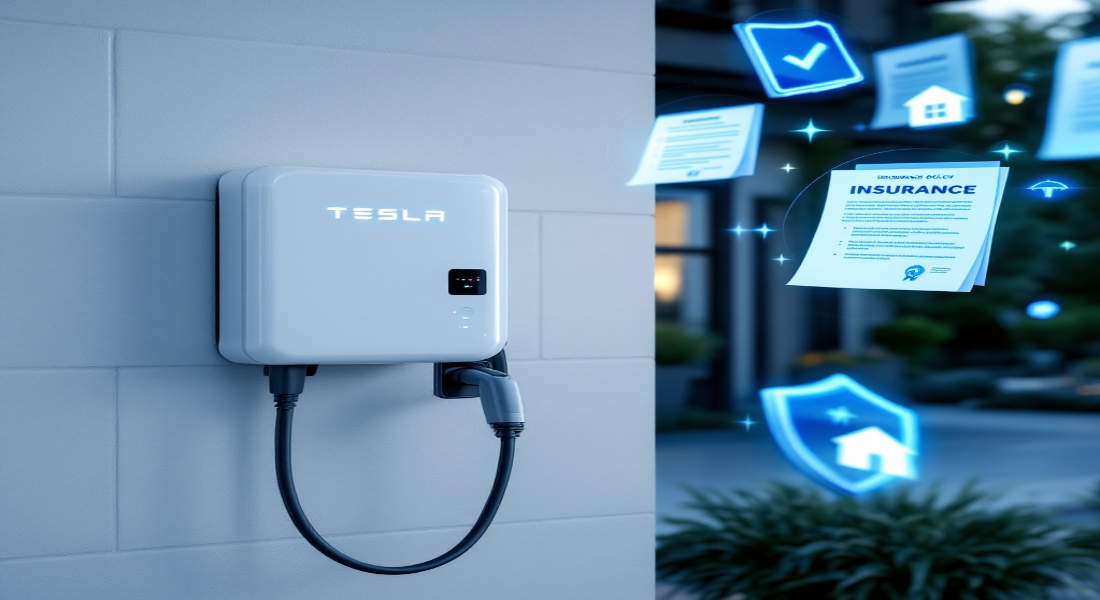
The good news is that home insurance does often cover EV chargers—but coverage is not always straightforward. It depends on factors like the type of charger, how it’s installed, and the specifics of your insurance policy.
You may also read (damage coverage in home insurance).
General Coverage Under Standard Home Insurance
Most standard home insurance policies offer coverage for hard-wired EV chargers because they’re considered a permanent fixture of the home. Here’s how coverage typically works:
- Damage Caused by the Charger: If your EV charger or its wiring causes damage to your home (e.g., sparks a fire), your home insurance may cover the repair costs.
- Damage to the Charger: If your charger is damaged by a covered peril (such as fire, lightning, or vandalism), your policy may cover the cost of repairs or replacement.
- Liability Coverage: If your EV charger causes damage to a neighbor’s property or results in an injury, liability protection within your policy may apply.
Differences Between Hard-Wired and Portable Chargers
- Hard-Wired Chargers: Since these chargers are permanently installed, they’re typically classified as part of the “dwelling” under home insurance. This means their coverage is tied to the structure of your home.
- Portable Chargers: Portable chargers, on the other hand, are usually considered personal property. Coverage for these devices may fall under the personal property section of your policy, which could have lower limits and require additional endorsements.
When Home Insurance May Not Cover the Charger
There are scenarios where home insurance might not cover your EV charger:
- Unpermitted Installations: If the charger was installed without proper permits or by an unlicensed professional, insurers may deny claims.
- Negligence: Damage caused by poor maintenance or improper use may not be covered.
- Excluded Perils: Events like floods or earthquakes may not be covered unless you have specific add-ons.
State-Specific Requirements
In some states, such as California and Oregon, laws require liability coverage for EV chargers. Insurers may also have state-specific policies regarding EV charger coverage, so it’s essential to review both your policy and local regulations.
When Does Car Insurance Cover an EV Charger?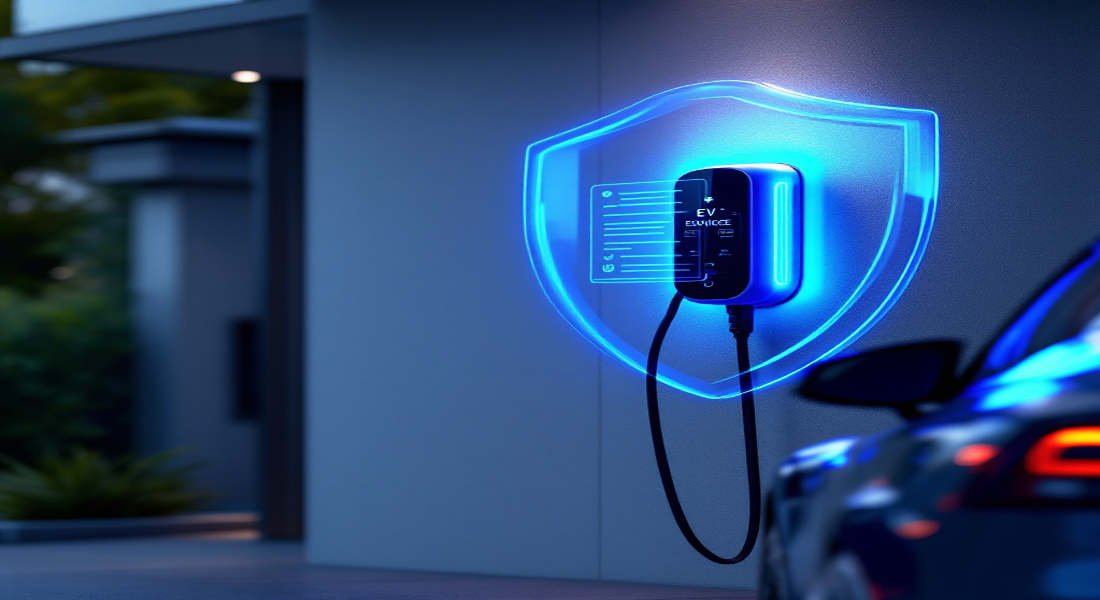
While home insurance often covers hard-wired chargers, portable EV chargers may be covered under your car insurance instead. Let’s explore how this works.
Comprehensive Car Insurance and EV Chargers
Comprehensive car insurance policies typically provide coverage for portable EV chargers because they’re considered part of the car’s equipment. For example:
- Theft or Vandalism: If your portable charger is stolen or vandalized, your car insurance may cover the loss.
- Damage During Use: If your charger is damaged while being used with your car, your car insurance may apply.
Limitations of Car Insurance Coverage
It’s important to note that car insurance does not cover:
- Wear and Tear: Damage from regular use or aging is not covered.
- Negligence: Improper use or failure to secure your charger may void coverage.
Overlapping Insurance Coverage
In some cases, both your home and car insurance policies offer coverage for a portable charger. However, this can lead to potential complications, such as double claims or disputes over which policy applies. It’s important to clarify these details with your insurers.
You may also read (understanding insurance coverage for home modifications).
Do You Need to Inform Your Home Insurance Provider About Your EV Charger?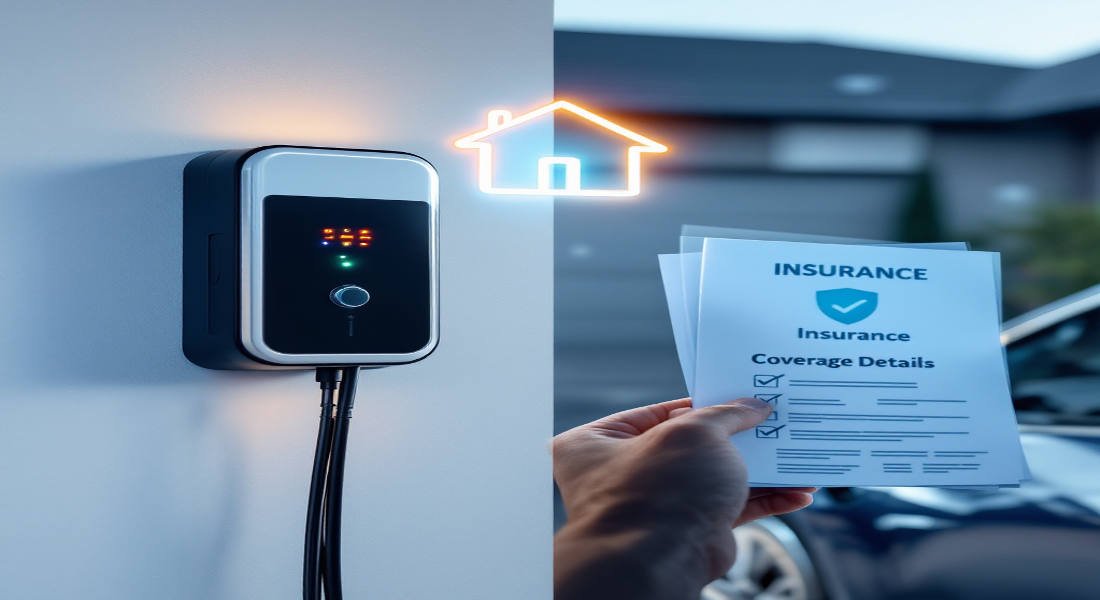
Notifying your insurer about your EV charger is one of the most crucial steps in ensuring proper coverage. Here’s why this matters.
Why Disclosure Is Important
Informing your insurance provider about your EV charger helps:
- Ensure Accurate Coverage: Your policy may need adjustments to cover the new equipment.
- Avoid Claim Denials: Failing to disclose the installation could lead to denied claims.
- Minimize Premium Surprises: Your insurer may adjust your premiums based on the added risk.
Insurer Policies on Notification
Some insurers require written notification when you install an EV charger, while others may not. However, disclosing the installation is a good idea even when it’s not mandatory.
Risks of Non-Disclosure
Failing to inform your insurer could result in:
- Insufficient Coverage: Your charger might not be covered in the event of damage.
- Denied Claims: If a fire or accident occurs and the charger wasn’t disclosed, your claim could be rejected.
Risks and Considerations When Insuring an EV Charger
Installing an EV charger comes with unique risks that insurers consider. Here are the main factors to consider.
Common Risks
- Electrical Faults: Poor installation can cause short circuits, leading to fire hazards.
- Theft or Vandalism: Portable chargers left outside are vulnerable to theft.
- Liability Issues: Injuries caused by tripping over charging cables could result in lawsuits.
Mitigating Risks
To reduce risks and ensure coverage:
- Hire a licensed professional to install your charger.
- Follow safety guidelines for maintenance and usage.
- Consider installing security features like cameras or locks for outdoor chargers.
How to Choose the Right Insurance Coverage for Your EV Charger
To fully protect your EV charger, you may need to customize your insurance coverage. Here’s how to do it.
Steps to Take
- Review Your Current Policy: Check if your home insurance covers EV chargers and if any exclusions apply.
- Consider Riders or Endorsements: Adding specific coverage for EV chargers can fill gaps in your policy.
- Compare Policies: Look at both home and auto insurance options to ensure comprehensive protection.
You may also read (home insurance and blocked drains).

